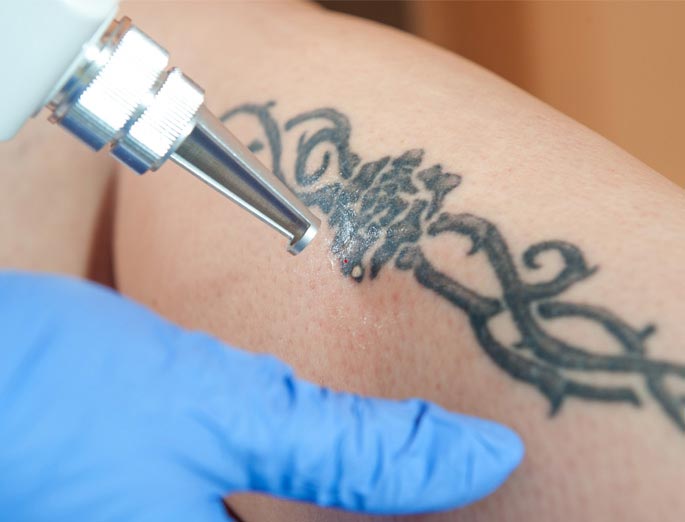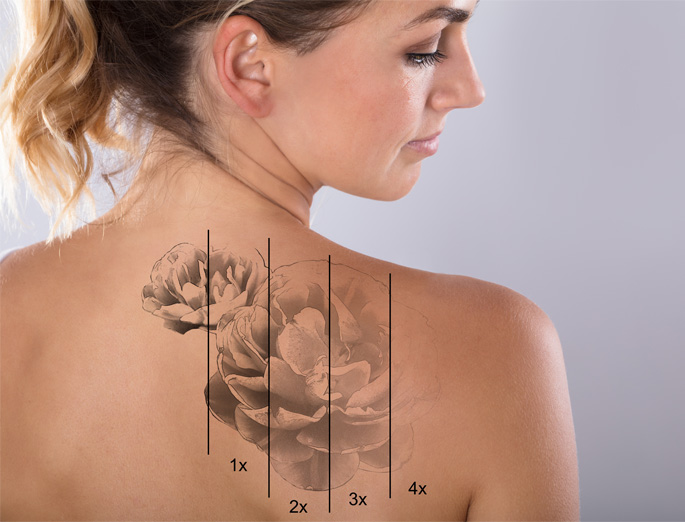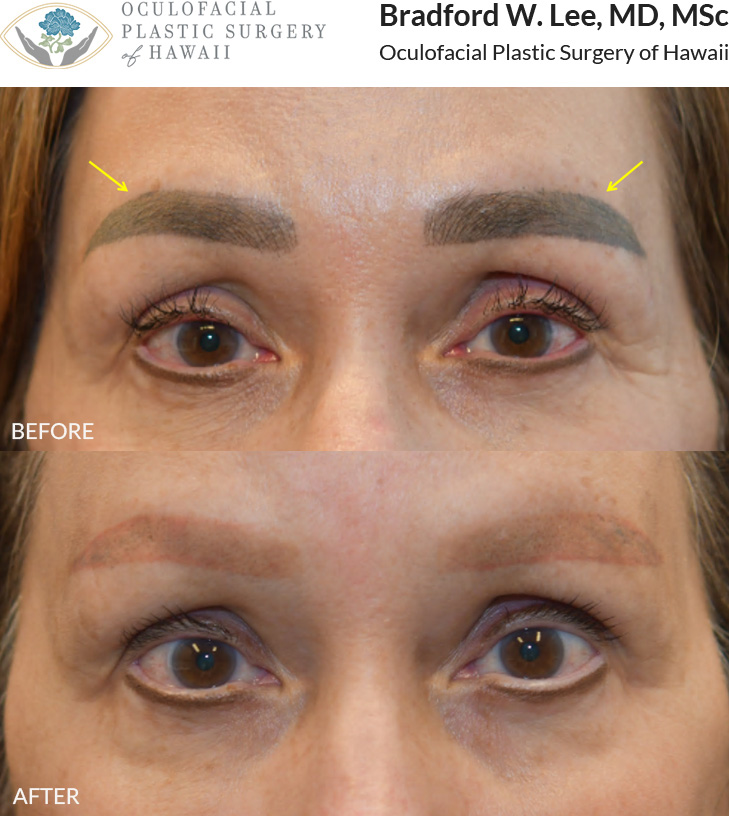Laser Tattoo Removal
What is Laser Tattoo Removal?
Laser tattoo removal is a non-surgical way to reduce or fully remove tattoos that you no longer want. Whether you want to remove a tattoo you regret or simply have changed your aesthetic taste, this treatment can effectively reduce the visibility of tattoos around the face or other parts of your body.Table of Contents
ToggleHow does Laser Tattoo Removal work?
Tattoo ink rests below the upper layers of the skin, so surface treatments simply are not enough to remove them or even significantly reduce visibility. The PicoSure Pro laser is specially designed to remove tattoos and one of the best laser tattoo removal systems in the world.It sends specific amounts of energy into the skin to directly target the tattoo ink. Normally, the ink of a tattoo stays beneath your skin because the particles are too large for your body to break down. That is what the laser’s job is. The pulses of concentrated laser energy heat the ink particles up and cause them to fragment into smaller particles. These smaller particles can then be naturally carried away and processed by your body’s immune system. Once enough ink has been broken down and carried off, your tattoo will be either less visible or entirely removed.
However, most tattoos cannot be removed in a single session. Dr. Lee considers factors such as the design, size, and color to recommend a series of treatments, each further reducing the tattoo or a part of the tattoo. In general, patients can expect anywhere from 1-10 removal sessions to reach their final results. While there is some discomfort during treatment, Dr. Lee uses a powerful anesthetic cream and/or local anesthetic injection to help improve patient comfort. The actual treatment can be performed quickly, with most lasting only a few minutes.

Testimonials





How does Dr. Bradford Lee customize laser tattoo removal?
Starting with your consultation, Dr. Lee carefully evaluates your situation and the tattoo you want to remove. Based on the size, color, and location of the tattoo, he can build a treatment plan that will reduce it as much as possible. From the number of sessions to the amount of time between them, Dr. Lee carefully puts together your treatment plan to deliver results that meet your expectations.
Before your treatment starts, he can provide you with an overview of what your results should look like, so you will never be in the dark about what to expect. While some tattoos cannot be fully removed, many will see a significant if not complete reduction in visibility for impressive results.
Does insurance cover laser tattoo removal?
Laser tattoo removal is considered a cosmetic treatment. For this reason, medical insurance companies do not cover it. Still, we work with our patients closely to develop a tattoo removal plan with accurate and upfront estimates of costs. We build all of our treatments around your personal and financial goals to eliminate any stress about unknown costs.
What is the “downtime” after laser tattoo removal?
Every laser tattoo removal treatment can vary significantly, as much as tattoos themselves vary. For patients who want to remove small or inconspicuous tattoos, there is virtually no downtime. You may experience some minor redness or swelling, but this quickly fades. However, you may want to take a day off after a larger removal treatment. In these cases, a large amount of skin is treated, and that skin will likely be sensitive after treatment. Even in these cases, any redness or swelling quickly fades, and you can get back to your daily routine in no time. We will provide you with complete instructions for caring for the treated site after each laser session for speedy healing and optimal results.
Schedule Your Consultation Today
Take the first step toward a fresh start for your skin. Schedule your consultation today to get started on your personalized laser tattoo removal plan. Dr. Bradford Lee works closely with you at every step to develop a complete tattoo removal program that matches your situation and adapts to your goals. Call us today to learn more about laser tattoo removal and how it can help you get your skin back to square one.



